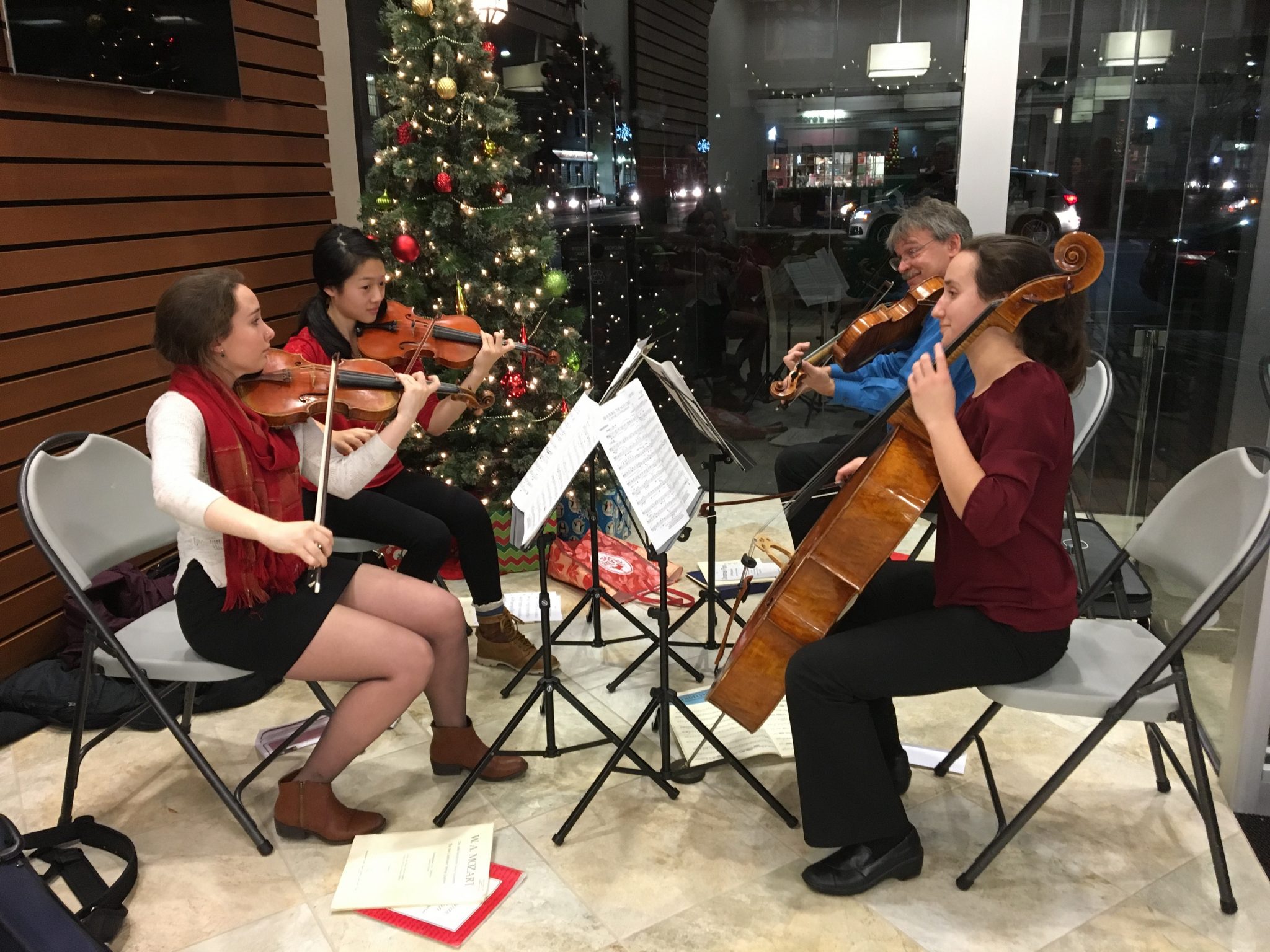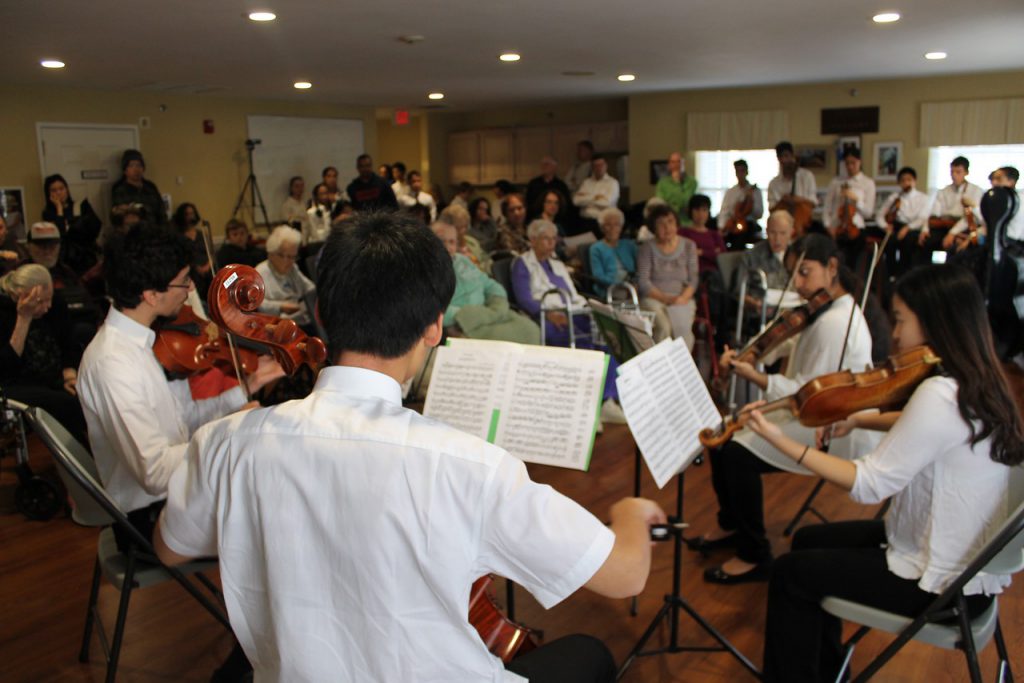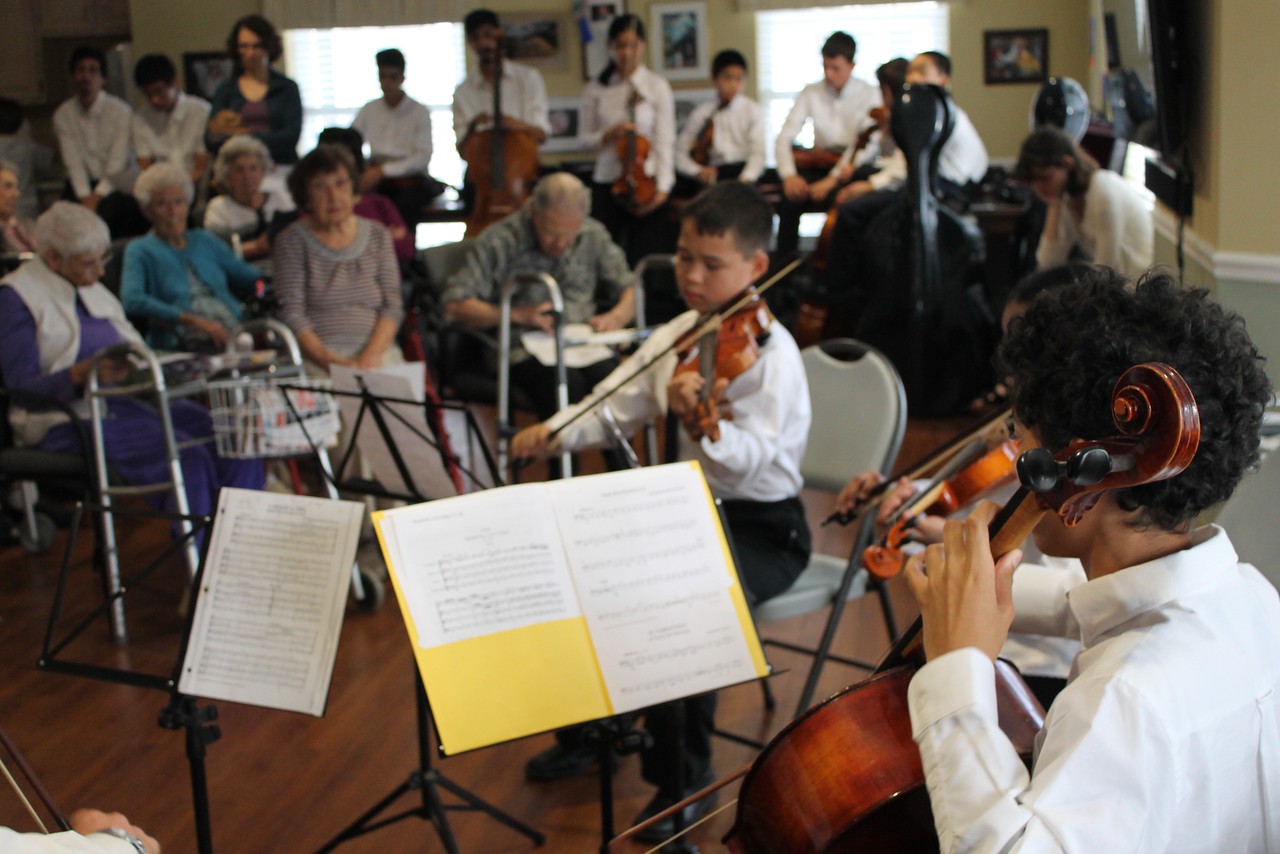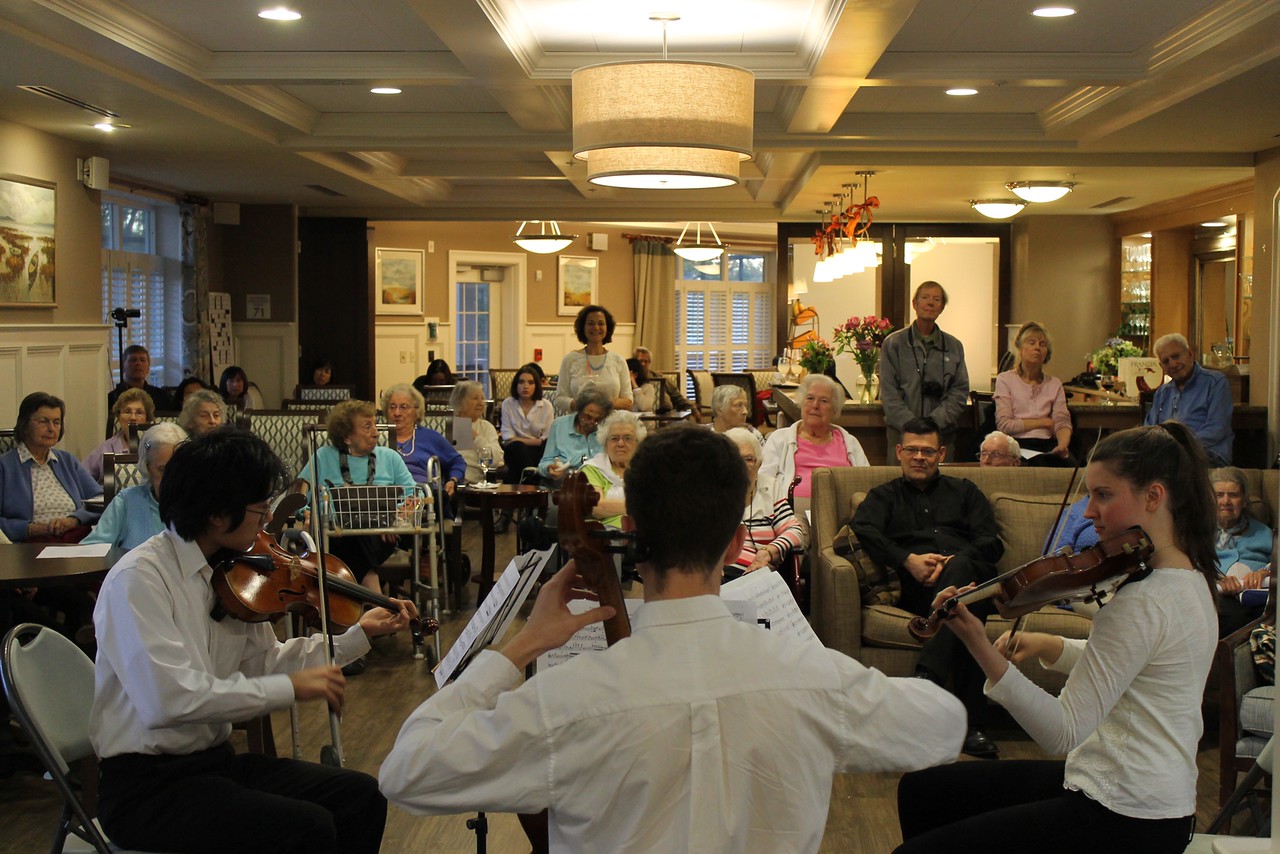Chamber music is a deeply cooperative activity that provides a supportive social environment with shared responsibility.
Players learn to listen and adjust to each other. The entire group shares in this musical discovery.
Chamber music is a deeply cooperative activity that provides a supportive social environment with shared responsibility.
Players learn to listen and adjust to each other. The entire group shares in this musical discovery.
Playing with others encourages the interactive exchange of musical ideas.
This cooperative approach emboldens less confident students and inspires gifted players alike.
Player share significant responsibility in shaping the final performance.
The incentive to practice comes not just from a parent or a teacher, but from a sense of obligation to the group.
The chamber music experience enhances, but in no way replaces, the private study of an instrument. It is absolutely imperative that a young student continue private study of his/her instrument, and we will not accept a young student who does not study the instrument privately as well. We work closely with private teachers to ensure that the group does not interfere in any way with the student’s private lessons.
Orchestras and large ensembles can provide some of the social advantages of small ensembles. However, with chamber ensembles, the student gets more individual attention from the coach. In chamber music, players share significant responsibility in shaping the final performance. To get a complete musical education, students should take private lessons, participate in an orchestra and have regular chamber music coaching.
Give each student ownership of the creative process. Each student’s individual efforts will be rewarded as the group learns to function as a unified team.
Encourage communication within the group. We practice the art of offering suggestions to others in a positive and supportive way. We also practice the difficult art of accepting ideas from peers without defensiveness.
Encourage communication through the music. Fundamentally, music is about communicating emotions. We help students understand what the composer is trying to communicate through them to the audience.
Develop the ability to simultaneously lead and follow with breathing and body movements. Unlike orchestra playing, chamber playing requires that each member become the conductor at times. Learning when to lead and when to follow (or both at the same time!) is an important skill in chamber music.
Develop critical listening techniques. Students learn to ask themselves the following questions: Am I ahead or behind the ensemble? Am I playing with correct relative intonation? Is my articulation matching the others? Am I playing too soft or loud in relation to the group sound? Does the group have a unified interpretation of the music?
Encourage students to reach beyond their potential. Every student should take pleasure in the success of the group, and not just in the success of their individual part. In this way, they will be inspired to practice their individual part.
Most importantly, show students that chamber music is fun!




Performing music initially gives us a feeling of great accomplishment. Young students burst with pride after playing a recital piece for their parents and receiving adulation from the audience. The talented young student can dazzle audiences with his/her precocious technical mastery. Often however, playing for outreach audiences does not provoke the same exuberant outbursts from nursing home residents. A ward full of Alzheimer’s patients will not spontaneously jump to their feet in applause at the end of a moving performance. The sense of achievement students get from playing for outreach audiences is much more profound and much more subtle. A connection made with one audience member who smiles at a particular phrase or “joke” in the music can fill a student with pride more than the adulation provided from an audience of parents and peers. The director of one of our outreach facilities recently wrote:
This is the effect our students have on their outreach audiences, and this becomes the basis of their sense of pride and feeling of fulfillment.
Most of our students will not pursue music professionally. Many are high academic achievers; members of the school math team, highly competent athletes, members of the debate club, etc. While dealing with such high achieving students often leads to scheduling difficulties, I would not have it any other way. Music is the other side of the academic coin. It fills a void left by other academic pursuits.
Often students come to me after performing at outreach facilities and express profound fulfillment from playing for these audiences. The sense of pride a young person gets from performing for elderly residents at these facilities is very different from the pride they get from academic or athletic achievement. It is not a pride of personal competitive achievement, but a pride of cooperative giving; they understand that they have touched lives in a profoundly personal way, and they have done this with a team of their peers. What better way is there to help students understand the responsibility we all have to those pushed aside by our fast-paced society?
There is no doubt that all of our students will be wildly successful at whatever they choose to pursue as a career. LCMC strives to help them become compassionate giving members of our society as well.